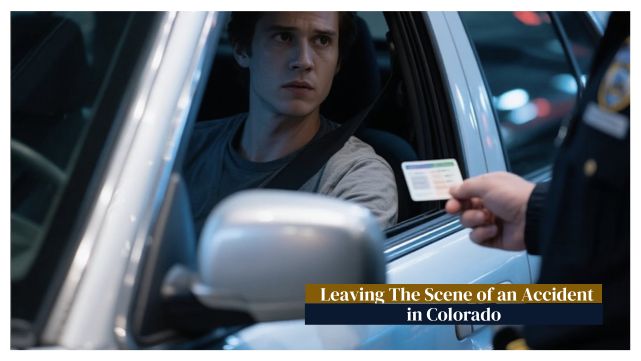Have you seen the signs on I-25 that read “New Law. No phone in hand while driving”? Let’s find out more about the new law, including what is prohibited and the possible penalties for violating the law.
Distracted driving has long been a public safety concern in Colorado, and starting in 2025, the state is taking firmer action. With the passage of Senate Bill 24-065, Colorado has enacted a comprehensive “hands-free” law that significantly restricts the use of mobile electronic devices while driving.
This new law — set to go into effect January 1, 2025 — expands on existing rules and applies to nearly all drivers, regardless of age. If you live in Colorado or drive through the state, it’s essential to understand what’s changing, what’s allowed, and the penalties for violations. Below, we’ll break down everything you need to know about Colorado’s new phone-in-hand while driving law.
The Background: Why Colorado Tightened the Rules
For years, Colorado prohibited handheld cell phone use for drivers under 18. Adult drivers, however, were only banned from texting while driving. This left a wide gap: adults could technically hold a phone for navigation, music selection, or even making calls, so long as they weren’t caught texting.
Unfortunately, distracted driving continues to be a leading cause of crashes in Colorado. According to the Colorado Department of Transportation (CDOT), distracted driving contributed to over 15,000 crashes annually in recent years.
To address this, lawmakers passed Senate Bill 24-065, which closes loopholes and aligns Colorado with many other states that have adopted stricter hands-free laws.
What the Colorado Hands Free Law Law Says
Beginning January 1, 2025, it will be illegal in Colorado for drivers of any age to hold or manually use a mobile electronic device while driving.
This includes:
- Holding a phone to talk or dial,
- Texting,
- Browsing social media,
- Adjusting apps or navigation,
- Taking photos or videos,
- Any other use that requires holding or touching the device.
Colorado law now defines “mobile electronic device” broadly — it includes not only phones but tablets, laptops, and any handheld or wearable communication devices.
However, there are important nuances and exceptions.
Can you call people behind the wheel in Colorado?
Colorado’s new law still allows some limited use of mobile devices, as long as it is hands-free. Examples of lawful use include:
- Using voice commands or Bluetooth systems,
- Operating devices mounted to the dashboard or windshield,
- Using a single swipe or tap to activate or deactivate a function (such as accepting an incoming call).
Special Exemptions: The law also makes specific exceptions for certain groups and situations:
- Emergency Situations: You may use your phone to contact public safety entities or during an emergency.
- First Responders: Law enforcement, fire, and emergency medical personnel are exempt while performing official duties.
- Utility Workers: Employees or contractors responding to utility emergencies may use devices.
- Code Enforcement & Animal Protection Officers: Local government employees acting in an official capacity are also exempt.
Additionally, if your vehicle is legally parked or stopped on the shoulder of the road, you may use your device — but be careful: simply being at a stoplight or in traffic does not count as legally parked.
Penalties for Hands Free Law Violations in colorado
The law is clear: violations are enforceable, and penalties escalate with repeated offenses.
Penalties For first offense:
- Fine: $75
- Points: 2 points against your driver’s license
Penalties for Second offense (within 24 months):
- Fine: $150
- Points: 3 points
Penalties for Third or subsequent offenses (within 24 months):
- Fine: $250
- Points: 4 points
There is also a one-time opportunity for drivers to have their first violation dismissed if they:
- Purchase a hands-free device.
This is an important incentive for drivers to invest in safer technology before points accumulate.
Enforcement and Privacy Considerations
Under the new law, police officers must observe you using a mobile electronic device in a way that causes you to drive “in a careless and imprudent manner” in order to stop and cite you. This is significant: it means that Colorado is not adopting a pure zero-tolerance policy but instead requires visible, unsafe use for enforcement.
Officers are also required to record demographic information for each stop to ensure equitable enforcement and to monitor data on violations of this law specifically.
Furthermore, the Colorado Department of Transportation, in consultation with the Colorado State Patrol, is launching a public education campaign to raise awareness about the dangers of distracted driving and the requirements of the new law.
Need legal representation? Contact Us Now
Resources: Colorado Hands Free Law, SB24-065



